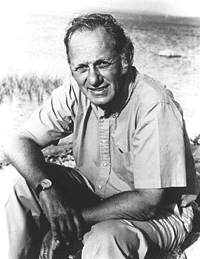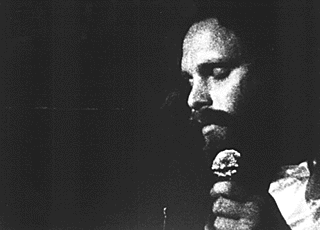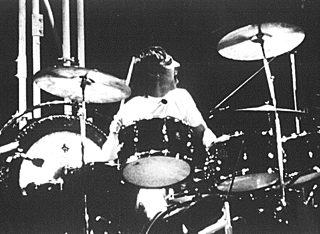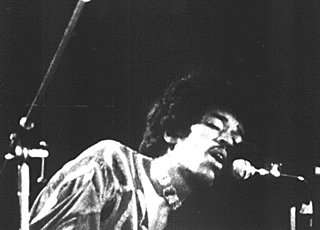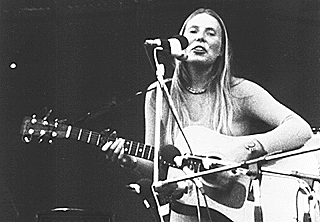The Wight Stuff
Message to Love: This Ain't No Woodstock
By Raoul Hernandez, Fri., June 20, 1997
|
|
At roughly the same time that hippies and Hollywood were coming together to document the rock & roll revolution, a young filmmaker from New Jersey by the name of Murray Lerner was in England trying to capitalize on the marriage of movies and music by filming what would ostensibly be the last great concert of its kind, the Isle of Wight Festival. Having gotten into the game in the early Sixties with his documentary about the Newport Folk Festival (simply titled Festival), Lerner had already screened Woodstock and didn't like what he'd seen.
"That's what impelled me to want to do this film," says Lerner by phone from his Manhattan offices. "I thought [Woodstock] glossed over too many things. I wouldn't have said it then, but I'll say it now. I felt, `No, this isn't right. I gotta do the other.' I felt that behind the scenes, there were similar things to what I show in my film. But why should they be impelled to show it? Well, it isn't that they have to, but they were making the point that everything was hunky-dory -- peace & love obviously. And I don't believe it."
One would be inclined to agree after seeing Lerner's Message to Love: The Isle of Wight Festival. A two-hour documentary about a show that featured many of the same performers who played Woodstock (Jimi Hendrix, the Who, Ten Years After, Joan Baez, John Sebastian) as well as a plethora of other big names (the Doors, Miles Davis, Joni Mitchell, Kris Kristofferson, Leonard Cohen, Free, Jethro Tull, E.L.P), Lerner's film focuses on the struggle the festival's promoters faced when hundreds of thousands attendees refused to pay [[sterling]]3 and instead tried to crash the gate. Interspersed with footage of Hendrix laying waste to "Foxy Lady" and the Who turning Mose Allison's "Young Man Blues" into a hard-rock classic, are scenes such as the one in which promoter Rikki Farr screams at the 600,000 people:
"And if you come to this country and we hafta charge you three pounds, if you don't want to pay it, don't fucking well come! We put on this festival, you bastards, with a lot of love and you wanna break our walls down and wanna destroy it, you go to hell."
|
|
"Woodstock glossed over all that stuff," asserts Lerner, "and that was the stuff that really gave rise to the puzzling contradictions in the hippie movement because, essentially, it became a way of making money for a lot of people behind the scenes. I'm not begrudging them, I guess I'm jealous; they made millions off that thing. And everybody talked as if it were a work of charity. Whereas I really made no money."
Originally, the organizers, having seen Lerner's Festival, merely wanted to screen that film at Wight. When the director proposed to film the concert for a Woodstock-style tie-in, they agreed. Unfortunately, the promoters were to go belly up, and Lerner was left with 175 hours of footage and no backing to edit and release it. Thus, for the past 25 years, the film -- really, the mid-point between the musical document that is Woodstock and the mayhem that is Gimme Shelter -- languished in Lerner's possession until Castle Communications and the BBC decided that the 25th anniversary of the festival would make a good excuse to release the movie, which premiered in 1995 at a film festival in San Jose.
|
|
"That came out in 1990," says Lerner, referring to the Hendrix video. "It's interesting; I was hesitant to put it out, because I thought it would kill any investment in the film, but it was just the opposite. People had been concerned about the quality of the film because of the black-and-white workprints and the scratch [sound] track. The [Hendrix] footage convinced them the quality was great, the soundtrack was fantastic."
|
|
The finest moments, however, are undoubtedly during Joni Mitchell's set. Following an onstage flare-up of tensions during which Mitchell is accosted by someone who looks uncannily like Charles Manson ("Yeah, it's eerie, but he's not"), Mitchell delivers an emotional rebuttal to the audience, saying, "I think you're acting like tourists -- give us some respect," before launching into a not-so-ironic version of "Big Yellow Taxi" ("They paved paradise and put up a parking lot"). Later, she turns up again with a stark reading of "Woodstock."
|
|
Message to Love: The Isle of Wight Festival opens at the Dobie Theatre on June 20.





